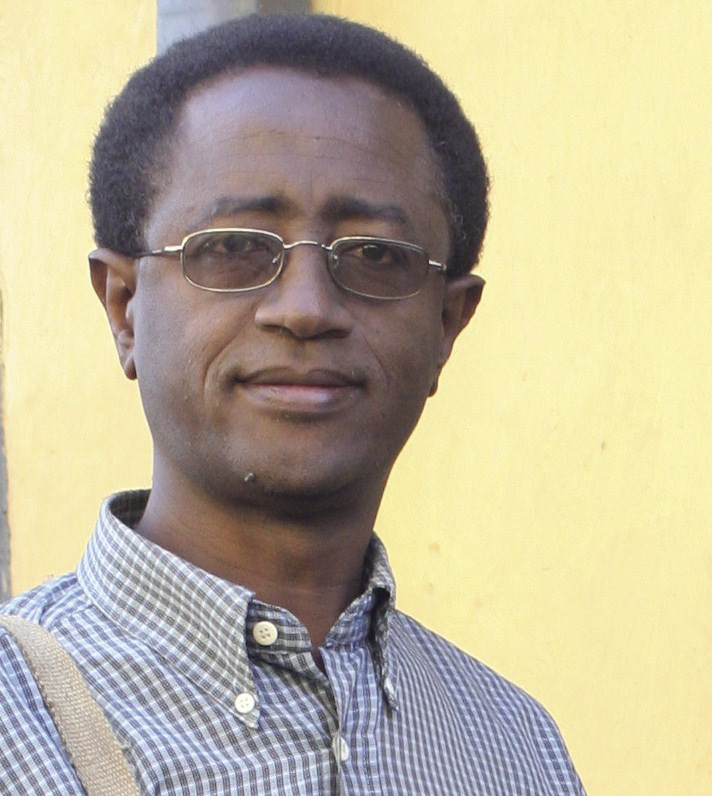- Home
- Publications
- PAGES Magazine
- Eulogy: Mohammed Umer Mohammed
Eulogy: Mohammed Umer Mohammed
Henry F. Lamb
PAGES news
20(1)
3
2012
Henry F. Lamb
Institute of Geography and Earth Sciences, Aberystwyth University, Aberystwyth, UK; hfl aber.ac.uk
aber.ac.uk
 |
|
Mohammed Umer, PAGES SSC member 2006-20011 |
The untimely death of Dr Mohammed Umer Mohammed, during fieldwork in the Afar on 27 November 2011, is a grievous loss to his numerous colleagues and friends in the international community of environmental geoscientists. Mohammed was Associate Professor at the Department of Earth Sciences, Addis Ababa University, for 19 years, where he initiated and led the Paleo-environment and Paleoanthropology Program. He served as a member of the PAGES Scientific Steering Committee, as co-leader of the PAGES Africa 2k Working Group, and of PAGES Science Focus 4 (Past Human-Climate-Ecosystem Interactions). He was a dedicated, inspiring and internationally recognized researcher, a truly dedicated mentor and educator, an ambassador for African science and for PAGES, and a much-valued friend to his students and colleagues.
Mohammed was born on 22 June 1959 in Robe, a small town in the Arsi Mountains, east of Ethiopia’s Rift Valley. He graduated from Addis Ababa University with a BSc degree in Geology in 1981, and taught at Asmara University, Eritrea, for five years, before beginning research at the University of Aix-Marseille III. His PhD, on the vegetation history of the eastern Ethiopian highlands, was completed in 1992, despite the difficulties of undertaking fieldwork during a period of political transition. His subsequent research focused largely on the environmental history of Ethiopia, where he made significant contributions to knowledge of that country’s place in the environmental, cultural and human evolutionary history of Africa. Mohammed took a full part in academic administration, as Associate Dean of the Faculty of Science of Addis Ababa University from 2005 to 2007, and was recently elected a member of the University Council.
Mohammed was a founding member of the East African Quaternary Research Association, and was elected its President in February 2011. He was a member of the executive committee of the International Association of Geomorphologists, and of the steering committee of the Hominid Sites and Paleolakes Drilling Project, supported by the International Continental Scientific Drilling Program. He was a key partner in the current Ethiopian Lakes Paleoenvironmental Reconstruction Project, led from Cologne University. These, and many other international scientific projects in Ethiopia, owe Mohammed a debt of gratitude: he was an essential and indefatigable colleague, making use of his wide-ranging network of friends to smooth the path of fieldwork and conferences, working with Ethiopian, French, American, German and British partners with tireless energy, great good-humor, and boundless enthusiasm.
Personally, I owe much to Mohammed for 18 years of fruitful collaboration and close friendship, during which we shared many memorable times – coring Rift valley lakes, surveying Lake Tana, exploring Mechara caves, and fieldwork on horseback in the mountains of south-western Ethiopia. Without his skills and enterprise, the work would have been almost impossible, and certainly far less enjoyable. He was a marvelous raconteur, with an inimitable style, and a vast store of amusing stories. Only a week before he died, Mohammed clearly enjoyed hosting a lunch party at his home for Ethiopian and international friends. That was just after fieldwork at the Dendi lakes, where he told me that he had now achieved two of his three “dream lakes”, the others being Garba Guracha in the Bale Mountains, for which he published the vegetation history, and the sacred lake on Mt Ziqwala, which he held realistic hopes of investigating.
Hard as it is for us, his friends and colleagues, to know that we will not share more adventures with him, it must be so much harder for Hawsa, his wife, and his two young children to have lost such an inspiring husband and father. His legacy will be for us, his friends, colleagues and students, to continue the research that he so much valued, and to further the training of those who would follow in his path.